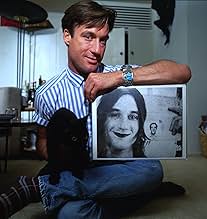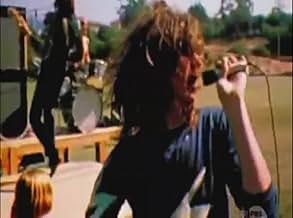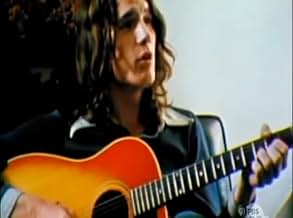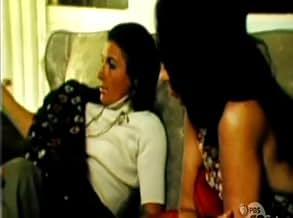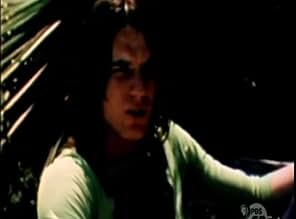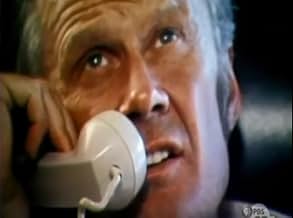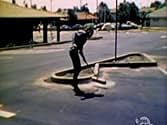Sigue la vida real de la familia Loud, un grupo abigarrado de suburbanitas.Sigue la vida real de la familia Loud, un grupo abigarrado de suburbanitas.Sigue la vida real de la familia Loud, un grupo abigarrado de suburbanitas.
Explorar episodios
Opiniones destacadas
I happened to stumble across An American Family one day, and I thought it was really fascinating. Before seeing this, I had no idea camera crews filming people's unscripted interactions existed prior to the early 2000s, so this is technically the first reality show. Who would've thought it'd turn out to be this moneymaking, human exploitation, manufactured drama of a machine that it is. People nowadays love to escape from their issues by pointing and laughing at the misfortunes of others, whether it's a person who loves to hoard all kinds of junk, litigants arguing in small claims court, or amateur cooks getting yelled and screamed at by a world class chef. I think judging and criticizing individuals with various problems gives folks comfort in a way, because it makes them feel like "well at least my life isn't that bad!" Reality television has led to society becoming increasingly hypocritical. An American Family is quite mild compared to the nastiness and backstabbing that's on our screens in this day and time but it was more or less a precursor of what was to come.
During the early 70s, people tuning into PBS were treated to the daily conversations and activities of the Louds, a family living in Santa Barbara. Bill and Pat were parents to 5 children - Michelle, Delilah, Grant, Kevin, and Lance - who ranged in age from mid to late teens. The issues and arguments they had are pretty much the same to what parents and teenagers are having/dealing with in the current time, so that is intriguing in a sense, to see how generations have similar challenges, but otherwise, just like reality TV now, it reaches a point where it gets incredibly boring to just watch people talking to each other. The Louds really aren't interesting or unique. Many of us have seen them before, either in a fictional sense, or maybe we had friends who lived in a family who was like this: unhappy couple often considering divorce, kids just doing whatever they want, one step away from getting hooked on drugs - but they all look normal on the outside, because they're financially comfortable. The husband/father is a lawyer, doctor, engineer, gives his wife anything she wants, children have all of their needs met, but the routine dinner parties and the smiles on the yearly Christmas photo hide a dark secret - that everybody is miserable. People were expecting this show to be something groundbreaking and fresh, but it actually hit too close to home.
On one hand, it was debatable as to whether or not the Louds were typical. They were Caucasian, had a large house, and owned several cars. It was actually quite ridiculous to market this white, rich, west coast family as being representative of families all over the entire US. But on the other hand, perhaps they were reflective of what the country was going through at the time - the aftermath of the Vietnam War, and fallout from the destabilization and controversy that was brought on by the hippie phenomenon. Regardless of whichever reaction people had, they either couldn't relate to them, or they related too much. I imagine the former was unsettling.
It's a cool relic and everything, but I couldn't sit there and watch them conversing for longer than 10 minutes. The kids sort of reminded me of how teenagers are now, talking back, sharing how they feel, etc., and it starts to not even be a conversation anymore, but a debate. I'm sure in 1973, that type of exchange between adults and kids was considered inappropriate. I can't speak from experience, because I was born 20 years after this came on TV, but I've always heard and read comments on the internet from boomers saying how when they were growing up, it wasn't acceptable for children to voice their opinion after their parents told them to do something, so the Louds were truly representing the affluent population of California, because that wouldn't have been tolerated anywhere else. I really don't care all that much what anyone's talking about in their home, so the fly on the wall concept is lame to me. The only people who seek out stuff like that are just nosy. If you love archival material, history in general, or you're a reality show fan and you wanna see the earliest adaptation, you'll love this. Otherwise, it was quite uneventful, for me anyway.
During the early 70s, people tuning into PBS were treated to the daily conversations and activities of the Louds, a family living in Santa Barbara. Bill and Pat were parents to 5 children - Michelle, Delilah, Grant, Kevin, and Lance - who ranged in age from mid to late teens. The issues and arguments they had are pretty much the same to what parents and teenagers are having/dealing with in the current time, so that is intriguing in a sense, to see how generations have similar challenges, but otherwise, just like reality TV now, it reaches a point where it gets incredibly boring to just watch people talking to each other. The Louds really aren't interesting or unique. Many of us have seen them before, either in a fictional sense, or maybe we had friends who lived in a family who was like this: unhappy couple often considering divorce, kids just doing whatever they want, one step away from getting hooked on drugs - but they all look normal on the outside, because they're financially comfortable. The husband/father is a lawyer, doctor, engineer, gives his wife anything she wants, children have all of their needs met, but the routine dinner parties and the smiles on the yearly Christmas photo hide a dark secret - that everybody is miserable. People were expecting this show to be something groundbreaking and fresh, but it actually hit too close to home.
On one hand, it was debatable as to whether or not the Louds were typical. They were Caucasian, had a large house, and owned several cars. It was actually quite ridiculous to market this white, rich, west coast family as being representative of families all over the entire US. But on the other hand, perhaps they were reflective of what the country was going through at the time - the aftermath of the Vietnam War, and fallout from the destabilization and controversy that was brought on by the hippie phenomenon. Regardless of whichever reaction people had, they either couldn't relate to them, or they related too much. I imagine the former was unsettling.
It's a cool relic and everything, but I couldn't sit there and watch them conversing for longer than 10 minutes. The kids sort of reminded me of how teenagers are now, talking back, sharing how they feel, etc., and it starts to not even be a conversation anymore, but a debate. I'm sure in 1973, that type of exchange between adults and kids was considered inappropriate. I can't speak from experience, because I was born 20 years after this came on TV, but I've always heard and read comments on the internet from boomers saying how when they were growing up, it wasn't acceptable for children to voice their opinion after their parents told them to do something, so the Louds were truly representing the affluent population of California, because that wouldn't have been tolerated anywhere else. I really don't care all that much what anyone's talking about in their home, so the fly on the wall concept is lame to me. The only people who seek out stuff like that are just nosy. If you love archival material, history in general, or you're a reality show fan and you wanna see the earliest adaptation, you'll love this. Otherwise, it was quite uneventful, for me anyway.
An early version of the peek and see webcams of today like MTV's original'Real World' and 'Jennicam', the William Loud family of Santa Monica California allowed a television crew [PBS] to set up a camera and photograph >the Loud family in their daily activities barbeques, sibling hassles, petty squabbles between Pat Loud and her husband Bill, it was certainly a very unusual thing, this documentary it was sort of like peeking over your neighbor's fence and spying on them...a most unusual television production!
I saw this documentary, most of it, over a decade ago, and I would like to see it today more than ever, because with the passing of time, the past becomes even more fascinating. In fifty years it will be even more fascinating. It gets better and better, as this slice of life recedes into the past. Of course, the family is also inherently interesting and likable. Not any family would do. There could be countless such shows, yet we seem to prefer fiction to reality. And so, this one remains all the more valuable because of its sheer rarity. Are there boring parts? Probably, but even boredom is interesting if one is interested. No need to be fascinated all the time.
The Loud family did not reside in Santa Monica, but Santa Barbara, California. Several mass media books incorrectly site Santa Monica as the central filming location for this ground-breaking documentary. Otherwise, Zog-3's comments are correct. "An American Family" is an exemplary American cinema verite film. For serious fans of the documentary genre, this thirteen part television series is a must see!
I videotaped most of the series when it reran on WNET some 20 years ago, and I keep trying to like it. But even to this avid TV viewer who lived through that era and is fascinated by cultural anthropology, the show is largely unwatchable.
The problem is that except for a couple of episodes (episode 2 and maybe the one with Lance in Paris), it's dull and slow. What made it shocking in 1973 -- the strangeness of being able to peek into someone else's day-to-day life -- has now been eclipsed by a torrent of tell-all talk shows and contrived "reality shows." Without the show's original voyeuristic shock value, ten of the twelve hours are unadulterated tedium (though I imagine a nifty 100-minute documentary could be culled from the footage).
The problem is that except for a couple of episodes (episode 2 and maybe the one with Lance in Paris), it's dull and slow. What made it shocking in 1973 -- the strangeness of being able to peek into someone else's day-to-day life -- has now been eclipsed by a torrent of tell-all talk shows and contrived "reality shows." Without the show's original voyeuristic shock value, ten of the twelve hours are unadulterated tedium (though I imagine a nifty 100-minute documentary could be culled from the footage).
¿Sabías que…?
- TriviaThe creation and production of "An American Family" is dramatized in the 2012 Hollywood film "Cinema Verite (2012)" (which is named for the technique of filming a movie to convey candid realism).
- ConexionesFeatured in Television: The Rise and Fall of the Documentary (1985)
Selecciones populares
Inicia sesión para calificar y agrega a la lista de videos para obtener recomendaciones personalizadas
- How many seasons does An American Family have?Con tecnología de Alexa
Detalles
- Fecha de lanzamiento
- País de origen
- Sitio oficial
- Idioma
- También se conoce como
- The Loud Family
- Locaciones de filmación
- Ver más créditos de la compañía en IMDbPro
- Tiempo de ejecución12 horas
- Color
Contribuir a esta página
Sugiere una edición o agrega el contenido que falta

Principales brechas de datos
By what name was An American Family (1973) officially released in India in English?
Responda
